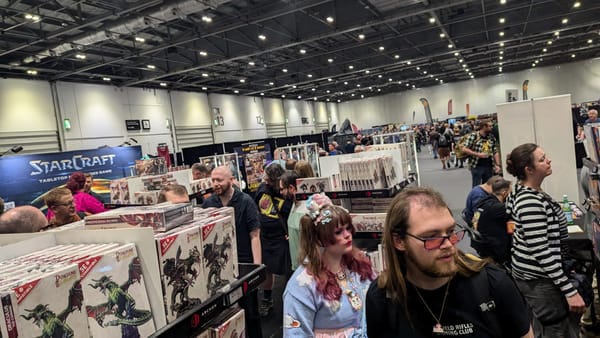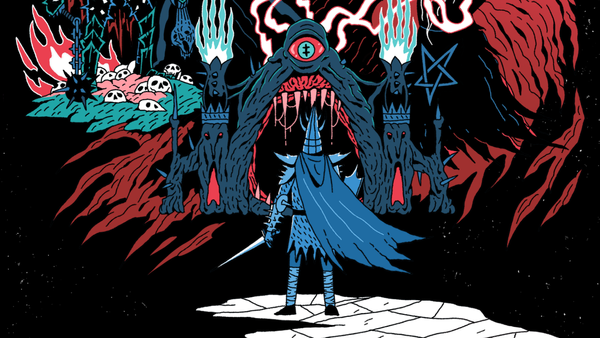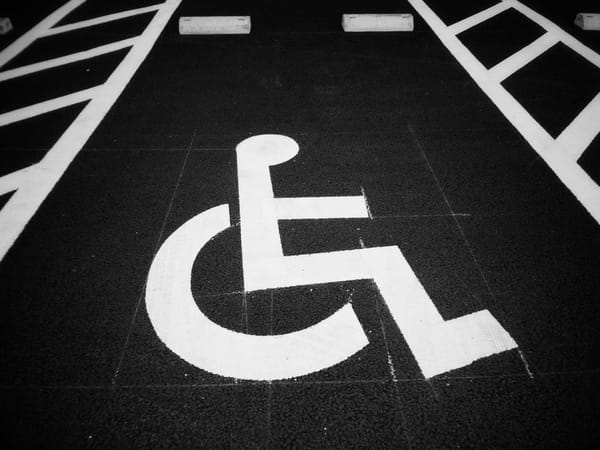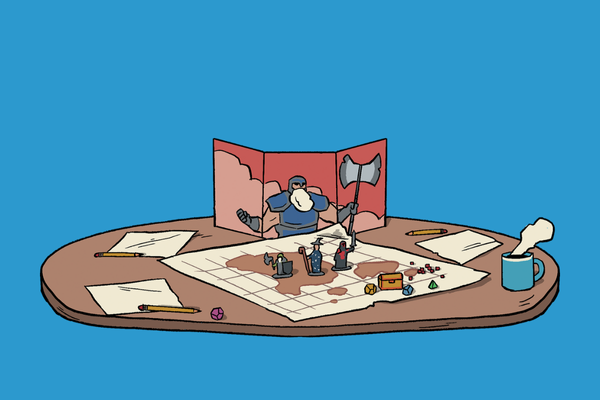Tabletop publishers believe RPG books are exempt from Trump tariffs, for now
But reality in the worst timeline changes daily.
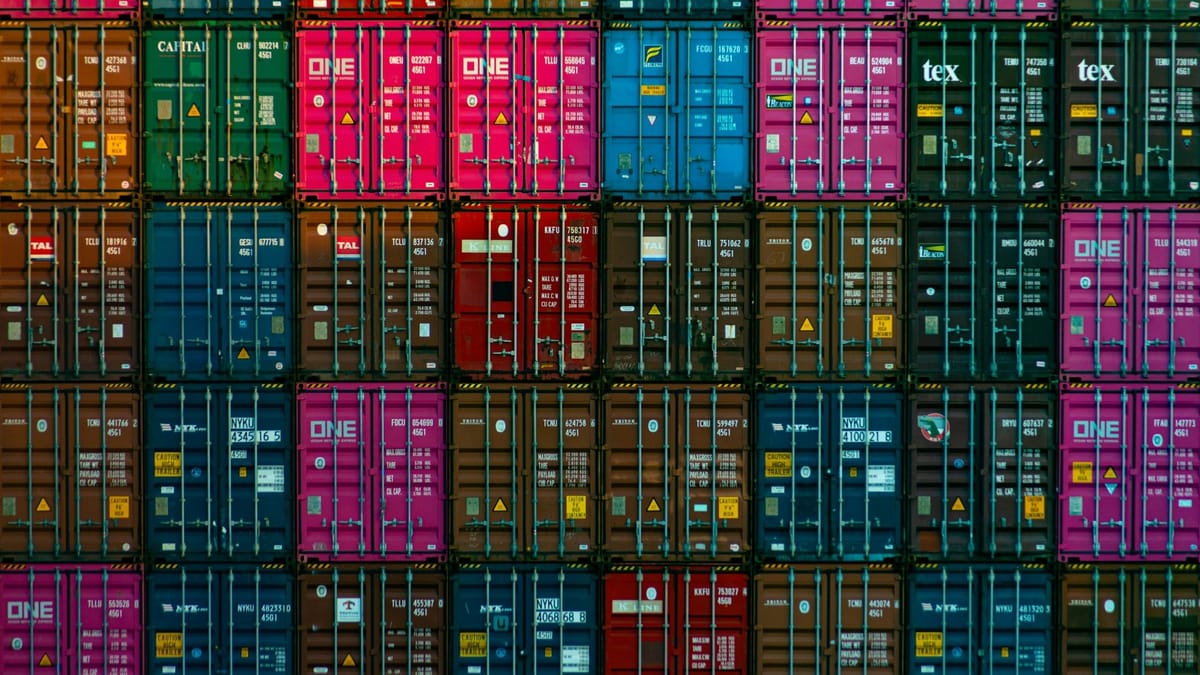
If President Donald Trump’s most recent round of so-called reciprocal tariffs actually sticks around, April 2 will likely be seen as the beginning of the end for countless businesses and swaths of entire industries. His capricious economic scythe hit international countries that are currently vital to the manufacturing and production of tabletop games, from China (54%) and Vietnam (46%) to most of the European market and Canada (25%).
The swift and prodigious extent of the tariffs understandably alarmed plenty of tabletop designers and publishers who all of sudden had to wonder if books currently printing — or worse, already on an overseas ship — would end up costing their creators far more than they could possibly make. Speaking to dozens in emails and messages, Rascal heard testimonials shot through with anxiety, fear, and a looming sense of defeat. People are considering cancelling crowdfunding campaigns, postponing launches, and even shuttering their business in the face of tariff-induced price increases and costs.
Except, more seasoned publishers aren’t quite ready to sound the alarm. Maz Hamilton with Rowan, Rook, and Decard explained on a call that most RPG books should fall under Harmonized Tariff Codes 49011000 or 49019900, both examples of a sort of universal tariff and VAT rate language. According to the US HTC Annex II, books shipped using either of those two codes should be exempt from new tariffs. Imported or exported products must be classified under an HTC (unhelpfully, the US uses a slightly different set of numbers from the rest of the world) that describes what’s being shipped “in the most accurate possible way,” Hamilton said.
"We are in a universe where what the US government has said is true no longer appears to bear any relation to reality."
“Customs cares about what the item is, not what its intended use is,” said Modiphius head of brand Samantha Webb. She explained via email that even if an RPG is played as a game, if it comes with a rulebook then US Customs considers it a book. Annex II explicitly carves out exceptions for “Printed books, brochures, leaflets and similar printed matter”, along with children's books and printed maps.
Modphius is intimately familiar with the HTC codes used for books versus board games, as the company not only publishes several RPGs such as Dreams and Machines, Dune: Adventures in the Imperium, and Achtung! Cthulhu, but also several different miniatures wargames and contemporary board games. “We've been shipping these products around the world for a number of years now and have drilled down to these codes based on the freight-forwarding companies we use and the guidelines for those codes,” Webb said.
But tabletop RPGs often stretch the boundaries of what might traditionally be called a book, opting for pamphlets, zines, and other experimental forms. Others produce deluxe boxed sets containing all manner of dice, standees, and extra gewgaws. How far can creators push that envelope? Hamilton said “the answer in reality and the answer on paper may not be the same thing.” RRD’s relationship manager Matt Sanders pointed to GM screens as a good example of a grey area. He said a GM screen isn’t much different than a children’s book with thick cardboard pages, so many publishers confidently categorize them as books. Others opt to export them as game accessories.
Orbital Blues and Mad as Hell maker Soulmuppet Publishing told Rascal that they categorize their products using a logic of “essential character”, or put another way, the majority (by weight or volume) of what the customer is intending to buy. In this way, a “bundle of pamphlets in a box”, such as the Orbital Blues boxed set can escape categorization as a board game and instead be imported as tariff-exempt books. Ultimately, the final decision rests with the US Customs agent — bitter medicine for creators working under already razor thin profit margins.
Hamilton and Sanders can’t blame artists for panicking, for reading headlines and assuming that a 54% cumulative tariff on goods from China means everything coming out of there or any of the other East Asian countries currently propping up the production side of the tabletop industry. And as Polygon’s Charlie Hall and Board Game Wire’s Mike Dydimus-True have reported, board game companies are likely facing extinction-level threats thanks to Trump’s tariffs.
“Customs cares about what the item is, not what its intended use is.”
Will that prove to benefit RPGs? Soulmuppet said that paper-only games will likely be the only product not forced to hike their prices in the near future. “If you just want a book made out of paper, you can print them in Europe, or even better if you can manage it in the US, or a ‘minimum baseline tariff’ country like the UK, Canada or Turkey,” they said.
On the other hand, they continue, broader market forces rippling out from the impact of Trump’s tariffs will almost certainly eat into direct consumers’ luxury hobby funds while also flattening the already meager profit designers made when selling to brick n’ mortar game stores. Like many tabletop businesses that spoke to Rascal, Soulmuppet imagines their interesting and experimental projects will be indefinitely shelved in favor of bog standard book designs.
I had hoped my reporting would be able to confirm that RPG books were exempt from Trump’s tariffs, easing the minds of frightened artists who woke up on Wednesday to discover a hellish new professional existence. It turns out that even the more confident actors are working on supposition and past experience — brittle currency when the US president consistently backpedals on massive economic announcements. Not even the freight shippers and brokers know what awaits them on Monday, one telling Rascal via email they didn’t feel comfortable speaking on the record until they saw the extent of the damage after the weekend.
“We are in a universe where what the US government has said is true no longer appears to bear any relation to reality. There is no way to say with clarity right now, this is what it says in Annex II and therefore this is how it's going to be applied once your boat comes in,” Hamilton said. “In a universe where government statements could be realistically trusted, I would be feeling pretty confident right now that books are exempt. As it is, I genuinely don't think we're going to know until after the first pallet of books lands in the US and gets either tariffed or not.”


